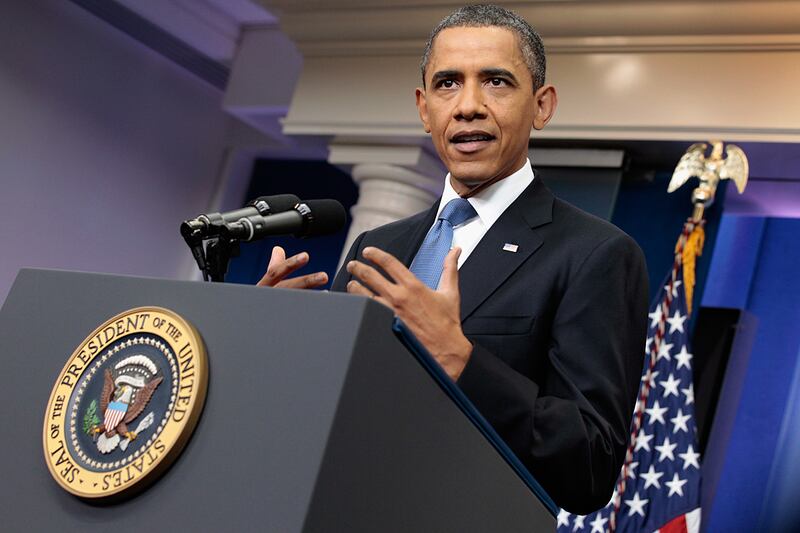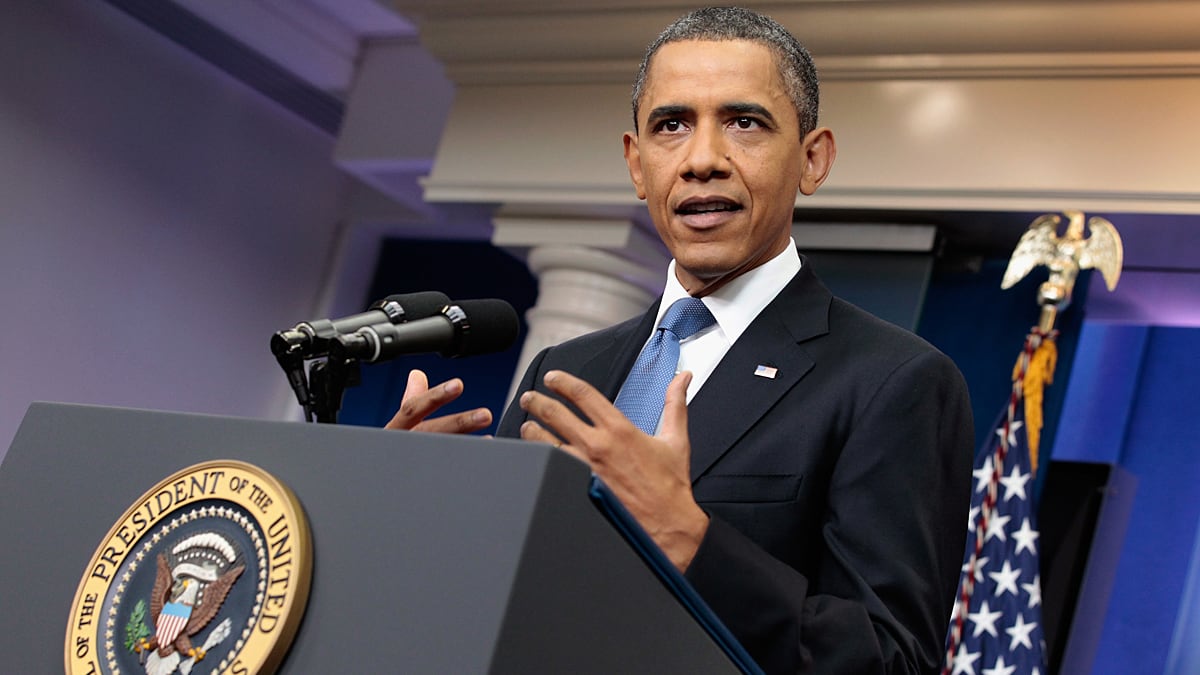President Obama, making another push for an “eat our peas” approach to slashing the deficit, ratcheted up pressure on the Republicans on Monday by vowing to veto a short-term budget deal of up to three months as a way out of the crisis.
“I will not sign” such a temporary budget fix, Obama said at a news conference, a moment after saying even a six-month deal would be unacceptable because it would push the problem into next year’s elections. If he sticks to that position, it would boost pressure on both sides to cobble together a longer-term agreement before the Aug. 2 deadline that will send the government into default if the debt ceiling isn’t raised.
The president went out of his way to praise House Speaker John Boehner and send a tough message to his own party by saying many of its lawmakers “would prefer not to have to do anything” on Medicare, Medicaid, and Social Security, which he explicitly put on the negotiating table for the first time. This was an unmistakable form of triangulation in which Obama positioned himself as the most reasonable man in the room, trying to push ideologues on both sides to give ground for the sake of the country.
With a determined demeanor, Obama pushed back against GOP criticism that he wants to raise taxes while the economy is ailing, saying no tax hike would take effect before 2013. He said it was time to get rid of “egregious loopholes” that help corporate-jet owners, oil companies, hedge-fund managers, and millionaires and billionaires—his now-familiar list of populist targets. The income-tax proposals, however, would affect not just millionaires but families earning more than $250,000.
For all the specific arguments he made about a “balanced” package of shared sacrifice, the president’s frustration was evident when he talked about Beltway gridlock. “It would give the American people enormous confidence that this town can actually do something once in a while,” he said. If each side takes a “maximalist” position, he warned, “then we can’t get anything done … I do not see a path to a deal if they don’t budge, period.”

Obama again declared his preference for “the biggest deal possible” after Boehner, under pressure from his right flank, pulled back from the kind of $4 trillion deal that the president and the speaker had tentatively agreed to pursue. The Republicans, led by Majority Leader Eric Cantor, say no package containing tax increases can pass the House. Obama called Boehner “a good man who wants to do right by the country” but recognized his political dilemma.
The president kept returning to the notion that both parties are to blame for the impasse. There is “resistance on my side to do anything on entitlements. There is strong resistance on the Republican side to do anything on revenues.”
Obama took a swipe at unnamed Republicans “who say we shouldn’t raise the debt ceiling,” declaring this stance “irresponsible” and adding: “They know better.”
It was an effective performance by the president, who was holding his second news conference in two weeks, but it may not have much impact. Obama was trying to rally public opinion to his side, but as the debt talks continue at the White House on Monday afternoon, there is little indication that Republicans or Democrats are prepared to give substantial ground as the clock ticks toward a potential default.





